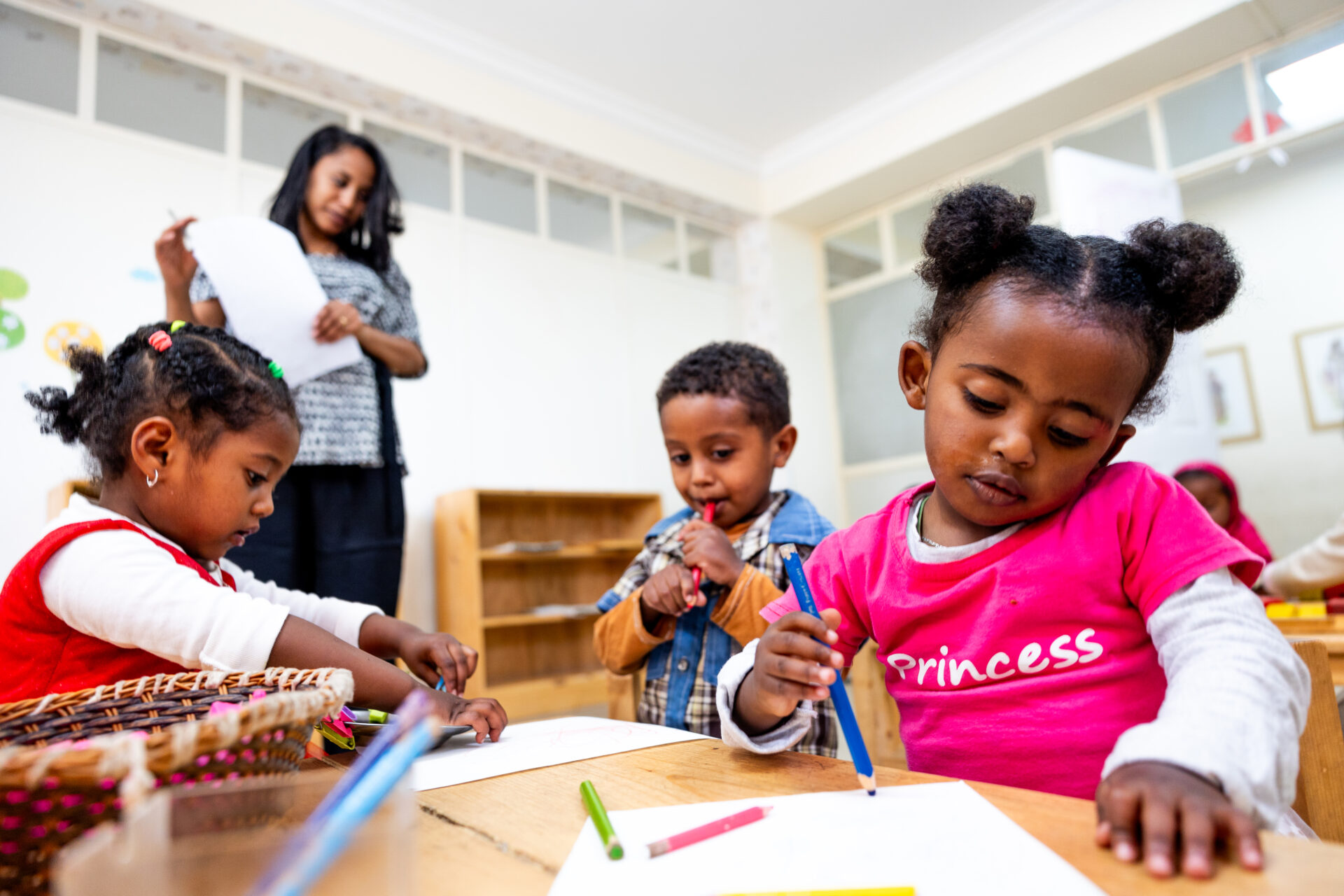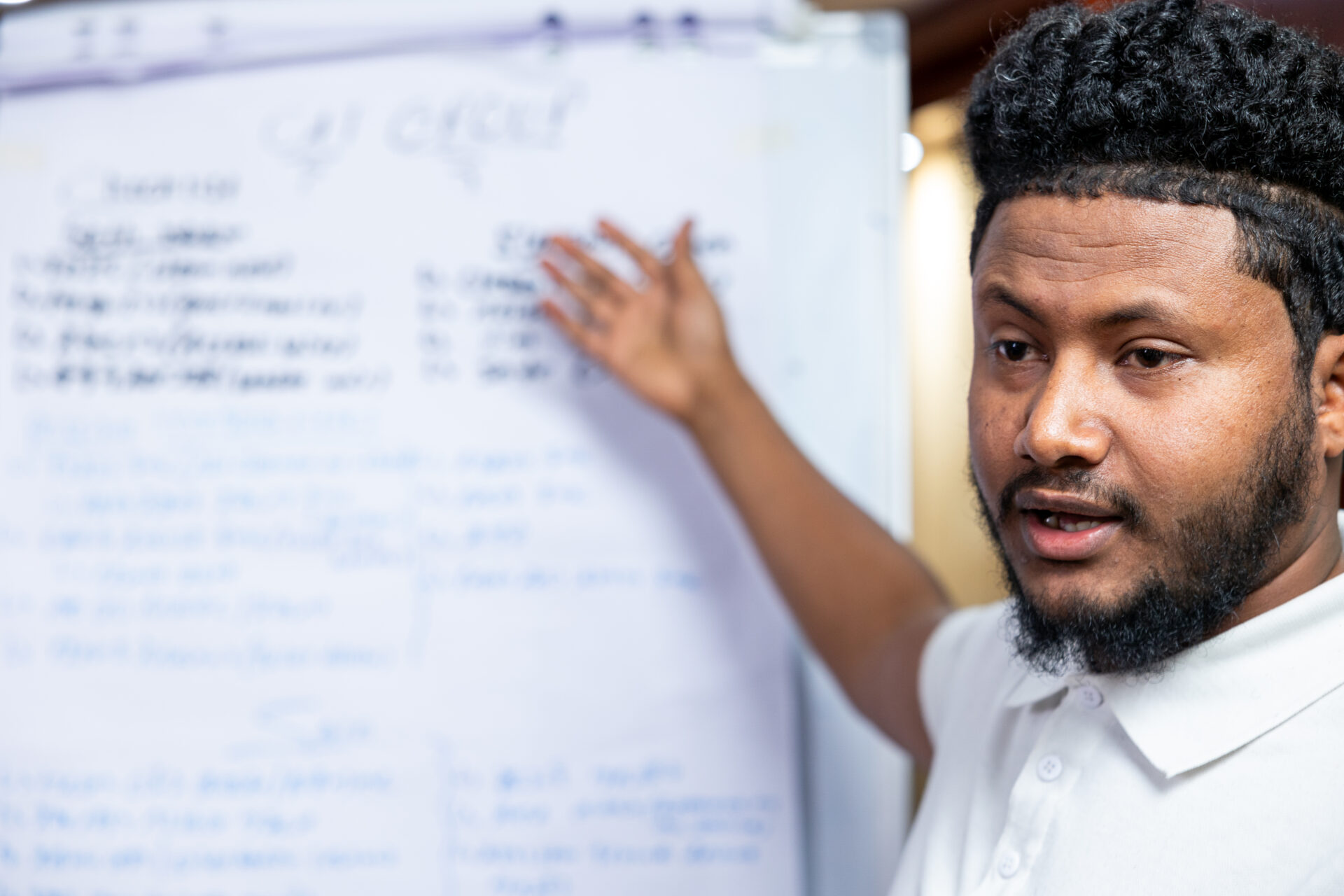We use cookies to analyze traffic and make a better web experience Read more
Approach

Approach
The model
Partnership for Change has developed a long-term, resilient model, anchored in the work of strong local partners. Together we scale up a much-needed transformation to create systemic change. Early Childhood Care and Education (ECCE) is the bedrock of our work, lifted by our 4 main tools – education, quality assurance, centre-based childcare, and value-chain creation. These tools encompass direct project implementation as well as transformative awareness-raising, to ensure that social justice and internationally recognised human rights are realised in practice, not just theory.
We aspire to an economy and a society marked by gender equality. Through local partnerships, we aim to scale up Early Childhood Care and Education in East Africa, driving inclusive growth.
The 4 tools

Setting the rules for high-quality early education.
about Quality Assurance
Training the professionals who care for and teach young children.
about Education
Opening nurturing spaces that children-and communities-can trust.
about Centre-based Childcare
Connecting centres with local suppliers for mutual growth.
about Value-chain creationWe work with local changemakers to create impactful initiatives that can inform better policy, and we work with policymakers to create systems where changemakers can thrive.
ECCE is what we do, but our approach – how we do it – is even more important to us. PfC is founded on the belief that partnerships, where each do what they do best, is the key to achieving more with less. Complementarity, not competition.
We also believe partnerships are the key to move beyond the “donor-recipient” relationship that blemishes international development. New ways of accelerating change are needed, and trust-based partnerships are a way of doing that.
Trust-based partnerships
Trust is a core ingredient of our partnerships. It enhances outcomes through mutual learning and progress, rather than fixating on oversight and setbacks. We choose our partners because of their ideas, skills, and commitment – not their ability to fill out forms and jump through hoops. After a network-based due diligence and pilot project have established trust, our model works 99% of the time.
‘Trust’ means our projects are responses to actual demand. Changemakers on the ground identify local needs, and together we find the most effective ways to deliver solutions, timely and at scale. By harnessing what already exists, interventions are cost-effective, and a focus on capacity-building of partners creates a stronger and more sustainable foundation for future projects.
It also means appreciating that reality is much more complex and uncertain than project plans. As emphasised by the pandemic, it is those who are flexible and responsive that create the greatest and most meaningful positive impact – converting challenges into opportunities. This can only be achieved by shifting decision-making power from boardrooms to those closest to the impact of the project.
We think systematically and strategically by including all sectors – business, government, and civil society.
